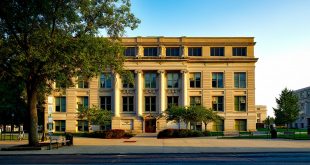The higher education system in Slovenia has gone through several structural changes, such as the introduction of new academic programs. As a result, at present, around 2,000 international students study in Slovenia.
Table of Contents
How is the higher education system in Slovenia?
There are several types of higher education institutions in Slovenia, including universities, colleges, art academies, and independent higher education institutions.
There are four universities in Slovenia, which we presented in detail in our article about the top universities in Slovenia.
Slovenia University fees
Tuition fees in Slovenian universities vary from one higher education institution to another. But the annual range for these fees are:
- Bachelor’s degree program: €2,000 to €11,000
- Master study: €2,000 to €15,000
- Doctoral studies: €2,000 to €6,000
Students who are from non-EU countries, part-time students in undergraduate and graduate programs as well as doctoral students, and students enrolled in a private higher education institution are the ones who pay tuition fees. As a general rule, you should pay your university tuition fees in one time for each academic year.
Learn more on the subject by reading our article on the study and living cost for students in Slovenia
Higher Education Programs in Slovenian Universities
The public university and single higher education institutions offer the traditional higher education programs.
Higher education in Slovenia has special regulations, taking into consideration the constitutionally guaranteed independence of public higher education institutions.
This is in addition to the European standards and guidelines that were set by the ministers who are responsible for the higher education and were adopted in the Bergen Communiqué in 2005. Confirmation took place in 2009.
Slovenia established an independent National Agency for the Quality of Higher Education (NAKVIS). It is responsible for the higher education quality assurance, in addition to the development and advisory work in this field.
Higher Education Study Structure in Slovenia
Slovenia joined the Bologna reform process in 1999. As a result, the country introduced in 2004 a three-cycle study structure. This way, the European Credit Transfer System (ECTS) is what measure the student’s achievement and performance levels.
As of the academic year 2010/2011, it became possible to enroll in the renewed “Bologna” study programs at all the three levels (university and postgraduate study programs).
First Cycle (Undergraduate)
The undergraduate programs usually take from three to four years of study and 180-240 credit points according to the ECTS.
Second Cycle (Master)
It requires one to two years of study and 60-120 credit points, according to the ECTS.
Unless the European Union guidelines state otherwise, the integrated master programs require five years of study. The main requirements of the integrated programs are 300 or 360 credit points, according to the ECTS, as per the EU guidelines.
Third Cycle (Doctorate)
It needs from three to four years of study, in addition to 180 credit points according to ECTS to get the official title of ‘Doktor znanosti’.
Higher Education Institutions: Universities in Slovenia for international students
In Slovenia, the higher education system includes the higher education and vocational higher education.
The vocational higher education offers short-term vocational programs over two years by the higher vocational colleges. These programs offer their students the practical knowledge and skills in specific occupations. Higher education is offered by the universities which are comprised of colleges, academies, higher vocational colleges, and independent higher education institutions.
The colleges focus on the scientific research and educational work in the science-related specialties. Colleges offer degrees in at least two cycles (first and second, or second and third).
The art academies carry out artistic and educational activities in a wide range of art specialties. Similar to colleges, the art academies offer degrees in at least two cycles.
Moreover, higher education studies are either provided by public universities (such as University of Ljubljana, University of Maribor, University of Primorska) or by private institutions (like the University of Nova Gorica). Public universities are as their name suggest are state universities. Private universities in Slovenia are institutions founded by a national or a private foreign legal entity or individuals.
All public and private institutions in Slovenia should be accredited and registered in the Register of higher education institutions to be able to issue proper recognized qualifications. This register is at the Ministry for Education, Science, Culture and Sport in Slovenia.
Higher Vocational Colleges
The higher vocational colleges carry out the educational activities for one or more interrelated areas or the vocational fields. They can also do researches or art activities, if stated by the law and if they fulfill all the requirements.
The higher vocational colleges award certificates in at least the first cycle. They may also offer master study programs if they were meeting the necessary requirements. This can also be done in cooperation with the colleges and art academies.
After you’ve learned about the higher education system in Slovenia, discover our list of the best universities in Slovenia




 Aljawaz Your guide to study abroad
Aljawaz Your guide to study abroad





